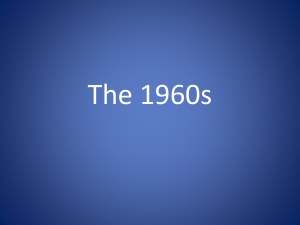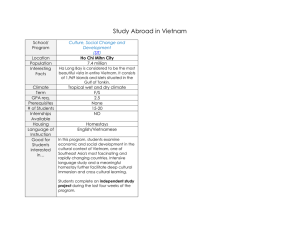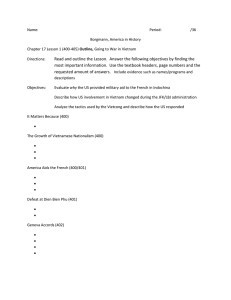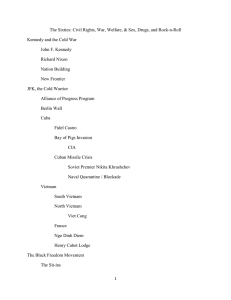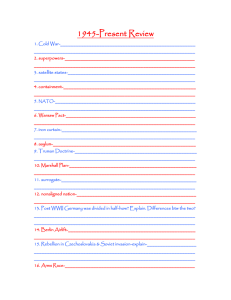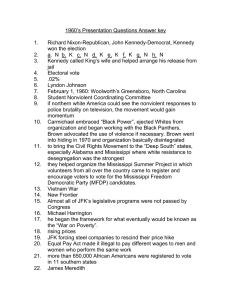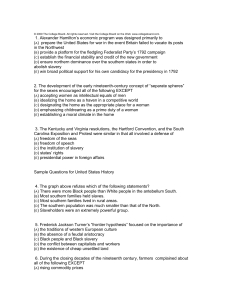Chapter 12 Study Guide Vocabulary: 1. prosperity-economic success and security
advertisement
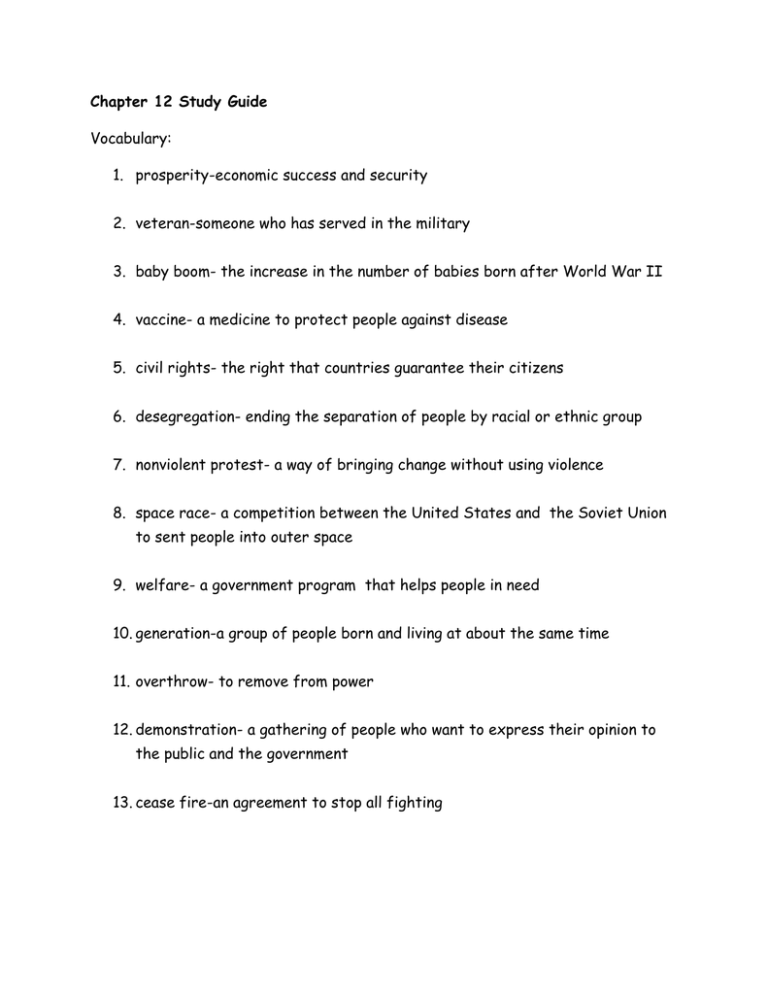
Chapter 12 Study Guide Vocabulary: 1. prosperity-economic success and security 2. veteran-someone who has served in the military 3. baby boom- the increase in the number of babies born after World War II 4. vaccine- a medicine to protect people against disease 5. civil rights- the right that countries guarantee their citizens 6. desegregation- ending the separation of people by racial or ethnic group 7. nonviolent protest- a way of bringing change without using violence 8. space race- a competition between the United States and the Soviet Union to sent people into outer space 9. welfare- a government program that helps people in need 10. generation-a group of people born and living at about the same time 11. overthrow- to remove from power 12. demonstration- a gathering of people who want to express their opinion to the public and the government 13. cease fire-an agreement to stop all fighting 14. What were the goals of Truman’s Fair Deal Program? To create jobs, build houses, and help African Americans get equal treatment 15. How did President Eisenhower help change the nation’s transportation system? He worked to pass the Federal Aid Highway Act ($32 billion to build 41,000 miles of highways) 16. What was the outcome of Brown vs. the Board of Education of Topeka, Kansas? The Supreme Court made segregation of schools illegal 17. Who was Thurgood Marshall? He was the first African American to serve on the Supreme Court 18. Who was Martin Luther King, Jr.? A civil rights leader and minister ( “I Have a Dream” speech) 19. What was a sit-in? A form of protest in which African Americans sat down at a “whites only” area and would not leave until served 20. Who was Cesar Chavez? A Mexican American activist who wanted to improve conditions for farm workers in California 21. Why did President Kennedy create the Peace Corps? He wanted young Americans to do volunteer work in other countries. 22. What steps did the U.S. space program take to catch up with the Soviets? Alan Shepard became the first American to go into space. In 1962, John Glen became the first American to orbit the earth. 23. What achievement put the United States ahead of the Soviet Union in the space race? In 1969, Neil Armstrong and Buzz Aldrin landed on the moon. 24. When and where was President John F. Kennedy assassinated? Dallas, Texas in 1963 25. Who became president after JFK was assassinated? Lyndon B. Johnson 26. What kind of music and art were popular in the 1960’s? Rock ‘n roll; pop art 27. Who were the Vietcong? Communist fighters in North Vietnam 28. What did the U.S. decide to send soldiers to Vietnam? To help prevent communists from overthrowing the non-communist South Vietnamese government 29. Why did opposition to the war grow in the United States as the fighting continued? The costs in dollars and in lives kept growing. 30. How did people show their opposition to the Vietnam War? They took part in antiwar demonstrations and marches 31. What was the outcome of the Vietnam War? Thousands of Americans died. The U.S. was unable to stop communism in Vietnam.

